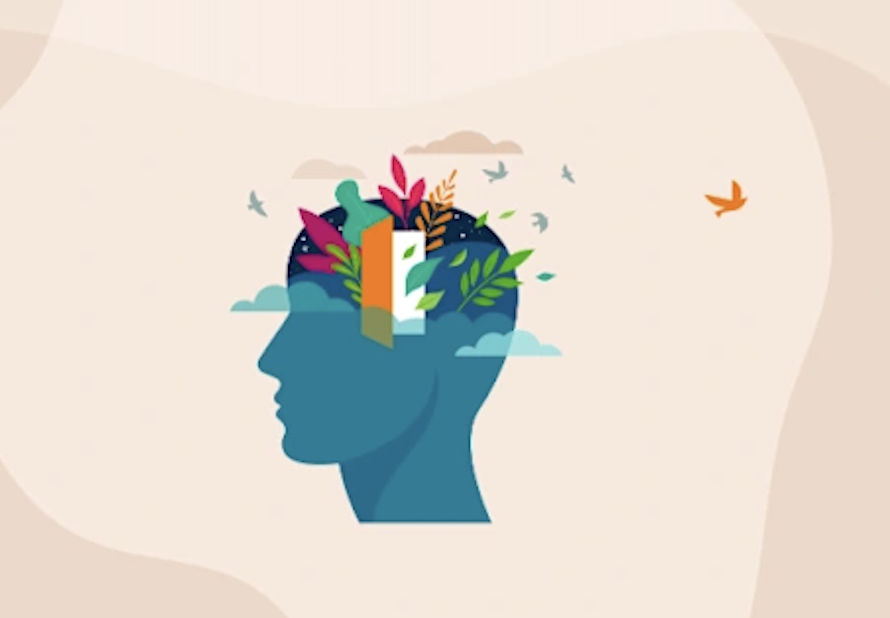I’m sure that you have heard about the viral Low Fidelity Music(LOFI) music and Binaural Beats too, specifically how it has been used for studying, but the real question is, does it actually work? How can a hip-hop beat or a suspended note actually help you focus? Well, I am here to discuss the science behind LOFI music and Binaural Beats to bust the myth.
Dr. Kevin Woods, one of the neuroscientists of Brain.FM, describes the best background music for concentration as having no salient events. A salient event in music is essentially any distraction that may occur (for example, the vocals or a dramatic change in an instrument used in a song). It’s a salient event because it is a dramatic difference in the track and can distract the listener LOFI is a simple track that has a high base and a simple melody. For LOFI, the soundtracks are calm yet upbeat enough that you don’t fall asleep; the beats per minute(BPM) is steady enough to ensure that you won’t be distracted. The simplicity of the track, blends together in a way that has a positive effect on your brain and cognitive behavior. LOFI essentially gives people a boost of happiness due to the chemical changes, specifically serotonin and dopamine cause by the upbeat nature of the tracks. Music like LOFI can produce the same amount of serotonin and dopamine as eating a bar of chocolate, and if you’re feeling unable to study or focus for a long period of time, it can be very useful. This in turn makes you feel relaxed, and when you are relaxed, that is when productivity is at its highest. I’m sure you’ve heard someone tell you that what music you listen to can change your mood, and it’s very true. This can be said for LOFI as well.
I would also like to mention another type of music that is used for both sleep and studying. Although it is slightly lesser known, there has been more clinical research supporting it. Binaural beats. Binaural means both ears and beats refers to the music. The way that it works is that you will hear two different tones, one in each ear, your brain will hear the two tones and align it with brainwaves (e.g. a beta wave). When it does this, it will then create the additional tone at a different frequency between the two tones. This helps your focus as there is nothing obstructing the Binaural beats like LOFI. For example, there’s no jazz or recognizable beats, which can make it seem quite dull, but does help you to focus. Research has shown that Binaural beats help with anxiety as well as cognition, and as much as the same can be said for LOFI, there is a lot more evidence for Binaural Beats.
To understand more of the science behind Binaural Beats, we first need to understand brainwaves. Our brain can produce one of five different brain waves depending on your mood and current activities. There are Delta waves that are produced while you sleep, Theta waves that are produced when you’re tired or drowsy, Alpha waves when you are relaxed, Beta waves while you are alert and Gamma waves while you are in concentration. An example of how this is applicable for studying is that you may be feeling sleepy and aimless, but you have an assignment due tomorrow and you need to complete it. Producing Beta waves is what you would want, however your brain would be producing Theta waves.
In conclusion, LOFI is more associated with dopamine and serotonin. It also has a steady beat and rhythm that keeps you focused but not distracted. Binaural Beats on the other hand is more scientific and has to do with changing your brain waves and alertness levels, increasing your focus. Although in the end, it’s up to the individual person. Everyone is different and something that works for one person, might not work for you. In fact, I’ve listened to both whilst writing this article, which I hope that you enjoyed reading.
Sources & Recommended Reading:
Brinkley, Greg. “1 MINUTE MATTERS: IMPROVE YOUR FOCUS WITH BINAURAL BEATS.” The Pursuit of Growth, 13 April 2021, https://www.livetpg.com/1-minute-matters-improve-your-focus-with-binaural-beats/. Accessed 17 September 2023.
Chowdhury, Azneef. “Can lo-fi music actually help you study?” The Daily Star, 1 March 2023, https://www.thedailystar.net/shout/news/can-lo-fi-music-actually-help-you-study-3260596#. Accessed 17 September 2023.
Lien, Tom. “How to Study With Concentration: Binaural Beats Will Boost Your Academic Success.” Lien Design, 21 September 2022, https://www.liendesign.com/blog/2022/9/14/how-to-study-with-concentration-binaural-beats-will-boost-your-academic-success. Accessed 17 September 2023.
Mielke, James. “How Lo-Fi Music Can Help You Study in College.” BestColleges.com, https://www.bestcolleges.com/blog/lofi-music-study/. Accessed 17 September 2023.
Summer, Jay. “Binaural Beats for Sleep.” Sleep Foundation, 26 May 2023, https://www.sleepfoundation.org/noise-and-sleep/binaural-beats. Accessed 17 September 2023.
Wai, Doris. “Psychologist explains why Lofi Girl is perfect for staying focused, which music will keep your studies on track – YP.” South China Morning Post, 16 September 2022, https://www.scmp.com/yp/discover/lifestyle/article/3192574/psychologist-explains-why-lofi-girl-perfect-staying-focused. Accessed 17 September 2023.
“What are Binaural Beats and How Can They Help You Focus?” The Los Angeles Film School, 1 July 2022, https://www.lafilm.edu/blog/what-are-binaural-beats-and-how-can-they-help-you-focus/. Accessed 17 September 2023.















